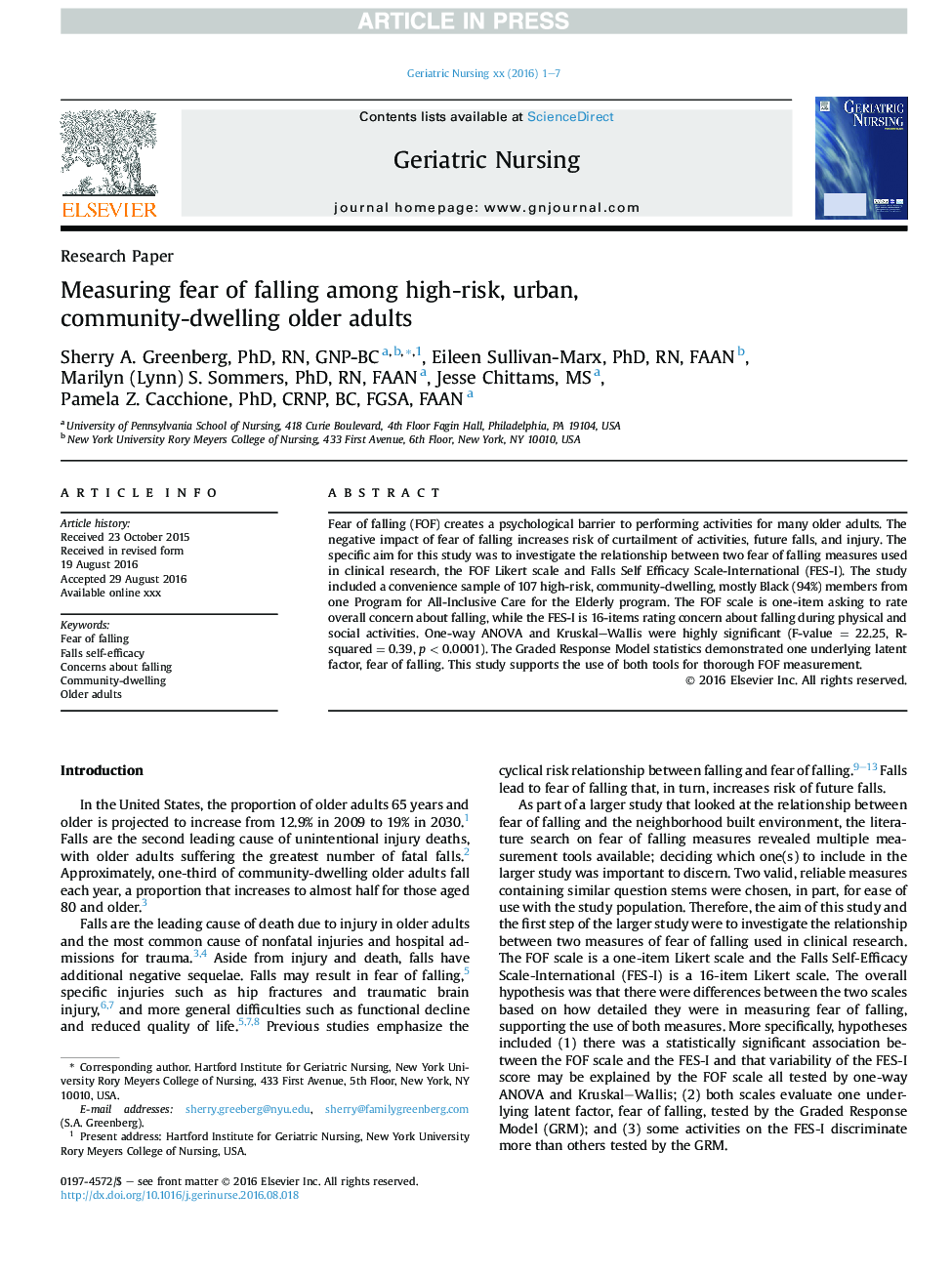| Article ID | Journal | Published Year | Pages | File Type |
|---|---|---|---|---|
| 5567904 | Geriatric Nursing | 2016 | 7 Pages |
Abstract
Fear of falling (FOF) creates a psychological barrier to performing activities for many older adults. The negative impact of fear of falling increases risk of curtailment of activities, future falls, and injury. The specific aim for this study was to investigate the relationship between two fear of falling measures used in clinical research, the FOF Likert scale and Falls Self Efficacy Scale-International (FES-I). The study included a convenience sample of 107 high-risk, community-dwelling, mostly Black (94%) members from one Program for All-Inclusive Care for the Elderly program. The FOF scale is one-item asking to rate overall concern about falling, while the FES-I is 16-items rating concern about falling during physical and social activities. One-way ANOVA and Kruskal-Wallis were highly significant (F-value = 22.25, R-squared = 0.39, p < 0.0001). The Graded Response Model statistics demonstrated one underlying latent factor, fear of falling. This study supports the use of both tools for thorough FOF measurement.
Related Topics
Health Sciences
Medicine and Dentistry
Geriatrics and Gerontology
Authors
Sherry A. PhD, RN, GNP-BC, Eileen PhD, RN, FAAN, Marilyn (Lynn) S. PhD, RN, FAAN, Jesse MS, Pamela Z. PhD, CRNP, BC, FGSA, FAAN,
